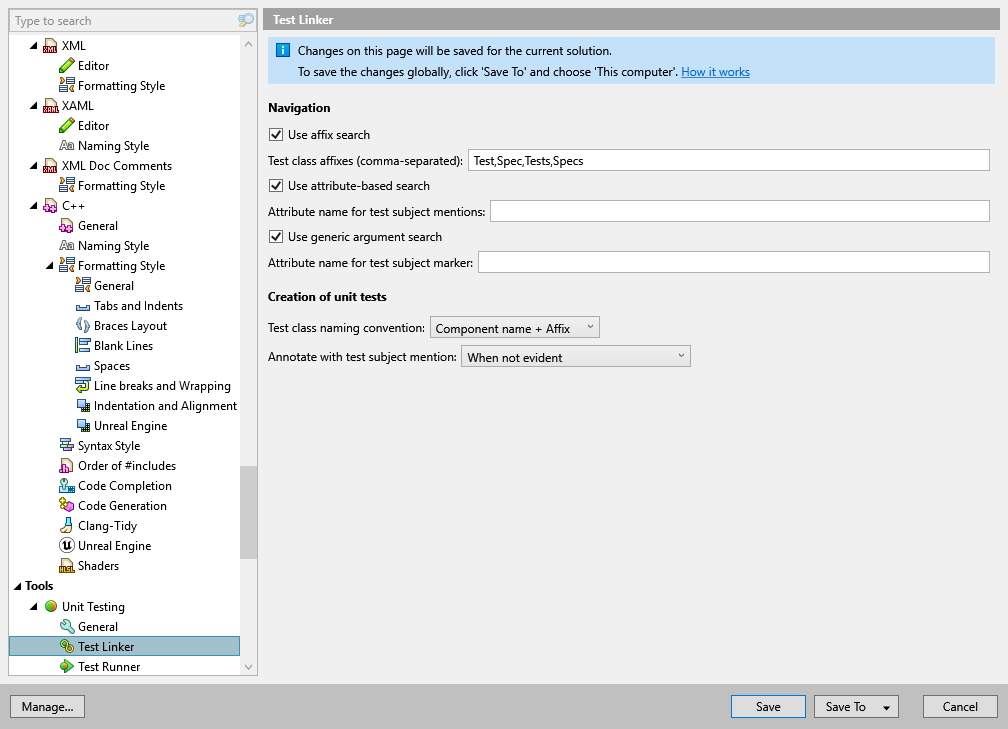Test Linker

Navigation
In this category, you can specify options for linking tests and tested code when you navigate between those.
Use affix search | ReSharper links test classes whose names start or end with the specified affixes to the corresponding classes in tested code. Clear this checkbox to ignore test class names and use other heuristics for navigation. |
Use attribute-based search | ReSharper links test classes annotated with a specific attribute to the corresponding classes in tested code. ReSharper always takes into account the [TestSubject] attribute from JetBrains.Annotations. For example, if you navigate from a class named If you annotate tests with another attribute to link them to tested classes, specify the fully-qualified name of this attribute to take it into account in addition to Clear this checkbox to ignore attributes and use other heuristics for navigation. |
Use generic argument search | ReSharper links test classes with tested classes when the base test class has a generic parameter that represents the tested class, and this generic parameter is annotated with a specifc attribute. Consider the following example:
[TestFixture]
public abstract class TestsFor<[MeansTestSubject] T>
{
private AutoMock myMock;
public T Component => myMock.Create<T>();
}
public class TestsForSampleClass : TestsFor<SampleClass>
{
[Test]
public void TestSample()
{
Component.DoSomething();
}
}
In this example, generic parameter Clear this checkbox to ignore generic arguments and use other heuristics for navigation. |
Creation of unit tests
In this category, you can specify options for creation of unit tests.
Test class naming convention | This option defines what name should be suggested for the created test class. The first affix specified in the Test class affixes field above will be used. |
Annotate with test subject mention | This selector defines in which cases the created test class should be annotated with the attribute that helps link it with the tested class. If the attribute should be added, ReSharper will use the attribute specified in the Attribute name for test subject mentions field above or the You can choose between the following options:
|